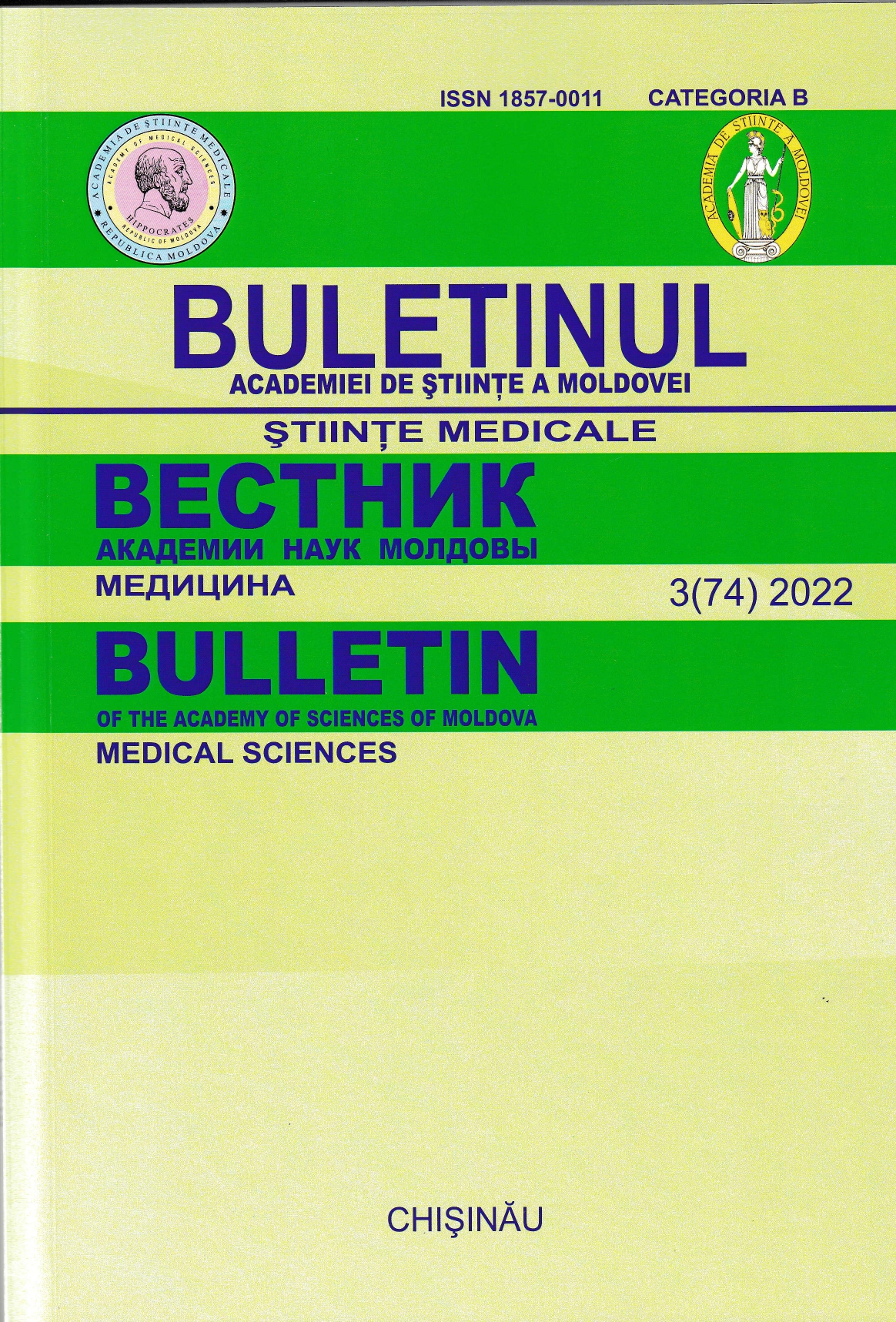Hypothyroidism induced by antituberculosis drugs.
DOI:
https://doi.org/10.52692/1857-0011.2022.3-74.40Keywords:
antituberculosis drugs, hypothyroidism, rifampicin, ethionamide, prothionamide, paraaminosalicylic acidAbstract
Tuberculosis is an infectious disease that affects practically all organs, including the thyroid gland. In the same time, the hypofunction of the thyroid gland may increase susceptibility to infection with Mycobacterium tuberculosis. Antituberculosis treatment, especially with second-line drugs, can lead to hypothyroidism. It has been found that rifampicin, ethionamide, prothionamide and para-aminosalicylic acid are among the most common antituberculosis drugs responsible for the development of hypothyroidism. These preparations/agents can cause thyroid dysfunction by increasing the metabolism and clearance of thyroid hormones by inducing cytochrome P-450 enzymes, deregulating/ iodine uptake and synthesis of thyroid hormones, altering hormone receptor action and intracellular signal transduction. The treatment with these medications requires the monitoring of the function of the thyroid gland during the treatment, especially in the first 3 months, but also in the post-treatment period. The installation of clinical and/or subclinical hypothyroidism will require the use of appropriate doses of levothyroxine during antituberculosis treatment.
References
Andries A., Isaakidis P., Das M. et al. High Rate of Hypothyroidism in Multidrug-Resistant Tuberculosis Patients Co-Infected with HIV in Mumbai, India. PLoS ONE. 2013; 8(10): e78313.
Biranu E., Wolde M., Negesso A.E. et al. Thyroid Profile and Factors Associated with Hypothyroidism Among Multidrug-Resistant Tuberculosis Patients Attending Saint Peter’s Specialized Hospital Addis Ababa, Ethiopia. Infect Drug Resist. 2021; 14:2675-2684
Cheng L.T., Chung C.H., Peng C.K. et al. Bidirectional Relationship Between Tuberculosis and Hypothyroidism: An 18-Year Nationwide Population-Based Longitudinal Cohort Study. Front Med (Lausanne). 2022 Jul 12; 9:900858.
Cheung, Y. M. M., Van, K., Lan, L., Barmanray, R. et al. Hypothyroidism associated with therapy for multi-drug-resistant tuberculosis in Australia. Intern. Med. J. 2019 Mar; 49:364-372.
Jagadesha C.G., Gokul C.G. Evaluation of Effect of Antitubercular Drugs on Thyroid Profile in Euthyroid Individuals. Int J Med Health Sci. 2019, 8(3): 28-33.
Lesmana R., Shidqi E.R., Goenawan H. et al. The Potential Interaction of Ethionamide-Thyroid Hormone Receptor Induces Hypothyroidism. Pharmacogn J. 2021;13(5): 1174-1179.
Madhuri P. Endocrine and Metabolic Manifestations of Tuberculosis. US Endocrinology. 2020; 16(2):88-96.
Mallela A.R., Koya R., Nagari S.K., Mohapatra A.K. Ethionamide: Unusual Cause of Hypothyroidism. J. Clin Diagn Res. 2015 Aug;9(8):OD08-9.
Matveyeva S. L., Shevchenko O. S., Pogorelova O. O. The function of the thyroid gland in patients with multi-drug resistant tuberculosis. Antimicrobial Resistance and Infection Control (2017) 6:82.
Munivenkatappa S., Anil, S., Naik, B. et al. Drug-Induced Hypothyroidism during Anti-Tuberculosis Treatment of Multidrug-Resistant Tuberculosis: Notes from the Field. Journal of Tuberculosis Research, 2016;4, 105-110.
Varghese V., Menon K.S., Green S.R. Effect of anti-tuberculosis treatment on thyroid profile in newly detected smear positive pulmonary tuberculosis cases. Int J Adv Med. 2018 Jun;5(3):688-693.
Zhao Ben-nan, LiuDa-feng, Liu Ya-ling et al. Clinical analysis of hypothyroidism after anti-tuberculosis treatment in patients with multidrug-resistant tuberculosis[J]. Chinese Journal of Antituberculosis, 2020, 42(5): 465-471.
Downloads
Published
License
Copyright (c) 2022 Bulletin of the Academy of Sciences of Moldova. Medical Sciences

This work is licensed under a Creative Commons Attribution 4.0 International License.



